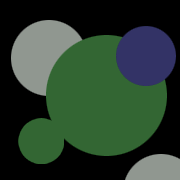
* Saul on the Road to Damascus
* Helen Keller discovering that sign language has meaning
* Archimedes discovering how to measure the volume of an irregular solid
--------
Internet References to this phenomonon:
The fifth skill of observation: the "Eureka", "I get it!" skill
(http://www.youcandraw.com/5skillsofobservation.html)
More from the same page: 5.) Putting it all Together. There's actually 2 things we're referring to here. You "put it all together" two different ways.
First, you integrate skills, you combine skills like the way you did when you learned how to drive a car. You learned signaling, the meaning of road signs, how to judge stopping, merging, accelerating, driving in the snow, etc.. Then one day you realized you could do those things automatically, without even thinking about them.
And second, you experience the "Eureka" effect first hand when you suddenly "get" something, when you grasp a concept, the way an insight rolls right through you when you have a sudden, full understanding, a "Gestalt". (The vase / face picture on the home page is just one example of this).
"The modern history of heuristics starts with the re-establishment of the concept attributed to Joachim JUNGIUS (Heuretica, 1622) who placed heuristic activities at the top of all sciences because of its capacity "to solve unsolved problems, find new paradigms and introduce new methods into science." Heuristics became a topic of philosophy; considered and written about by DESCARTES, LEIBNIZ, KANT, WOLFF, BAUMGARTEN, LAMBERT, FRIES, BOLZANO and others who studied the conditions under which scientific discoveries were made and identified rules to be followed. There are several branches and fields of applications which are discussed in Gerhard KLEINING (1995, pp.329-354) and its history more generally in Heinrich SCHEPERS (1974)."
(http://qualitative-research.net/fqs-texte/1-01/1-01kleiningwitt-e.htm)
Definitions:
hermeneutic: the study of the methodological principles of interpretation (as of the Bible)
heuristics: learning, discovery, or problem-solving by experimental and especially trial-and-error methods
homology: a similarity often attributable to common origin